KBBQ: ''Valve Is Really Only Beholden To Themselves And Their Interests.''
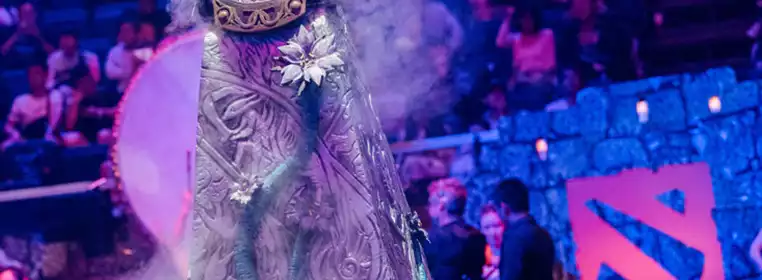
From the outside looking in, The International (TI) is everything to Dota 2 esports. The prestige, the hype, the spectacle, and of course the prize pool - all of that culminates in giving TI this radiance of mysticism. A pure, genuinely cosmical experience that holds no rival. It is the biggest tournament in the entire esports industry, and one that Dota 2’s esports scene revolves around exclusively. Legacies are made and defined at TI, literal career transformations that elevate players to an eternal status. Yet, for all of that reputation, what happens when all of that disappears in an instant when The International just suddenly doesn’t happen. That’s the situation Dota 2 pros and organisations are currently faced with. When there is no TI, and no word surrounding TI, well then what is a team supposed to do?
For the majority of this year, teams have had no word surrounding The International or the Dota 2 Pro Circuit (DPC), the subsequent system meant to serve as the game’s competitive regular season. Usually, teams would compete for prize money and points to qualify for TI through majors and minors, tournaments set up by third parties who are partially sponsored by Valve. The original plan for the 2019-2020 DPC season played host to ten tournaments with over $6,000,000 in the total prize pool. However, of course, as is the situation with the entire world, any event scheduled past March of 2020 had to be cancelled.
Since then, teams across the globe have been participating in third-party online tournaments in their respective home regions, but the prize pools are nowhere near close to what the original LAN events were, with the majors valued at a million dollars each, and minors at $300,000.
On September 4, Valve announced a very barebones plan for the return of the DPC and TI, “… four third party events and leagues in EU/CIS events, three in China, and a few others that are still in the preliminary planning stages and are not able to commit at this time… We are also operating under the assumption that the most likely outcome is for The International to happen in Stockholm in August 2021”. It is incredibly difficult to plan for these types of things as an organiser with the world’s current state of course, but it is also incredibly difficult for the teams and players whose livelihoods revolve around this ecosystem as a career.
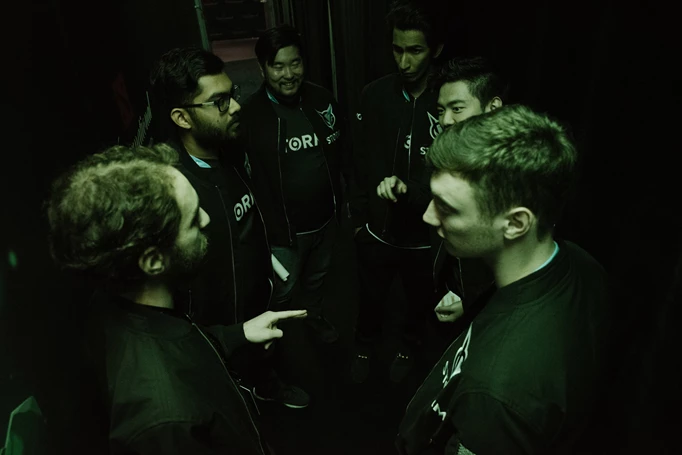
 Click to enlarge
Click to enlargeQuincy Crew (QC) is one of those teams that is currently struggling in this landscape of online play and smaller tournaments. However, that isn't necessarily apparent from their match record. For all intents and purposes, they are the best team in North America and South America, with seven first-place finishes in every tournament they've participated in since May. While they are on a dominant hot streak, the reality of their success is a much different experience for the players and their manager, Jack "KBBQ" Chen, who sat down with GGRecon to shed light on what it's been like for the people who live and breathe Dota competitively.
"It has been difficult, because just the way the scene has been designed, TI is the end-all be-all for most players. We don't have a super well-established competitive circuit. We're structured less like one of the big American sports leagues like an NBA or NFL, we're close to like tennis or golf".
While the DPC's purpose is to provide stability and structure to the scene, it doesn't come without faults. It isn't guaranteed to play like a franchised team in the Overwatch League or LCS, you get in through qualifiers, and where you place against the other teams isn't always a known factor.
"It's been hard because when there wasn't any news about TI and just so much uncertainty, the other stuff kind of gets exposed a bit more… People feel like it went from their main calling or their mission to feeling like a side gig... For instance, in the OMEGA League North America, we had about 1/20 of the prize pool of Europe".
North America, once a prominent region in Dota 2, is currently struggling comparatively to Europe. Years of issues are now piling up to the point where the region is now looking incredibly barren.
"NA specifically we have a pretty small player base, I think we have the smallest player base of the regions, I don't even think it's particularly close. We don't have that much fan or sponsor interest largely because of that. Our costs are high, so it's hard to get an org. You'll notice a lot of the top teams in the region are still unsponsored".
This wasn't always the case; in fact, NA used to be a region with a lot of promise and attention. Jack recalls that the 2017-2018 DPC season, was really the peak for players and teams in terms of opportunities and exposure.
"The thing is we're not that far removed from a situation where a lot of orgs were interested or invested in our scene. Again I'm pretty sure we have the smallest player base by a wide margin, but if you look at two years ago in the first DPC season, there were so many teams and orgs competing in our region, a good six or seven of them throughout that season. There was a lot of competition, a lot of qualifiers, a lot of teams getting a chance to go to LANs for like the first time, including a lot of the guys on our team.
"There was a lot of opportunity, when that happened, when things were structured by the scene to have a big pie that could be spread out to give people a chance at the spoils and opportunities to grow, you saw the orgs and players and fan bases accordingly respond to that. All these sponsors came up, all these team houses, these people diving in to take a shot at it. If the incentives are there to be invested and get into it, people will respond to that".
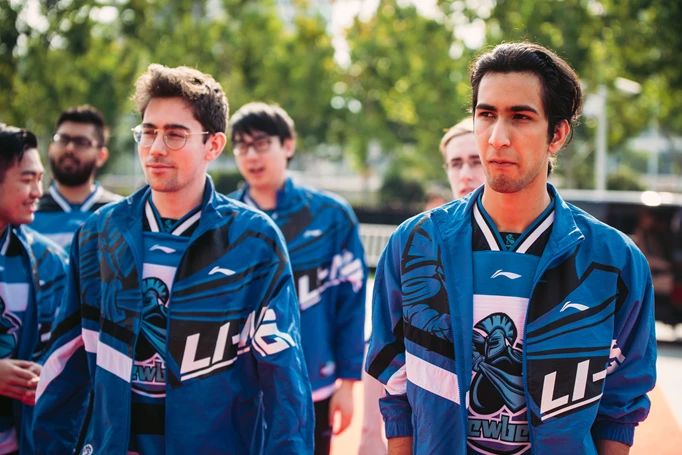
 Click to enlarge
Click to enlargeThe disparity between what the 2017-2018 DPC season offered and what was available in the 2018-2019 DPC season is staggering, to say the least. In the first season, there were 22 tournaments, as opposed to the ten found in the 2018 and 2019 seasons. Obviously, this leads to less LAN opportunities and much smaller prize pools.
"A lot of the rewards and the pie became more centralised. It started revolving around the same DPC events, and people started to have to pick and choose their spots, or there were too many simultaneous qualifiers to attend all of them. It became a situation where things got even more concentrated and centralised. TIs prize pool continued to grow, and so did the gap between the DPC prize pool and TI.
"Instead of the first season, here you have $13 million in DPC prize money and $24 million for TI, all of a sudden you have a TI that's $35 million, and the rest of the DPC is a few million dollars. It just magnifies the importance of TI, which means that both that one tournament and the teams concentrated at the top are more rewarded for it. That structure, I think, is not great for sustaining the overall scene, struggling regions, or smaller organisations or teams that feed into your overall competitive scene. In North America, there aren't many as really up and coming young players. It's not the same".
The question now becomes, knowing these issues, and how exacerbated they've been because of COVID - what are the solutions? Has Valve taken note of what's going on, and have things been put in motion behind the scenes? KBBQ shares that maybe those are the wrong questions to ask.
One thing that people gripe about, and you just have to take a step back and realise, Valve is really only beholden to themselves and their interests.
"It might not be the best for people in the scene, but that's just the reality, they're there to put out a product that's profitable and as profitable as possible for them.
"Generally, they've wanted to be pretty hands-off, they don't want to invest in an ever-growing bureaucracy that does enforcement and all this stuff for esports. I don't necessarily blame them for taking that route, I think it's very unwieldy and probably not that profitable, and probably goes against their core values. They don't hire people for that reason as far as I can tell, like ever. With that, and with the fact that TI has become its own beast that it is so important. Once you create a circuit, call it the DPC, and it determines everything for TI, that opening Pandora's box you can't go back from that".
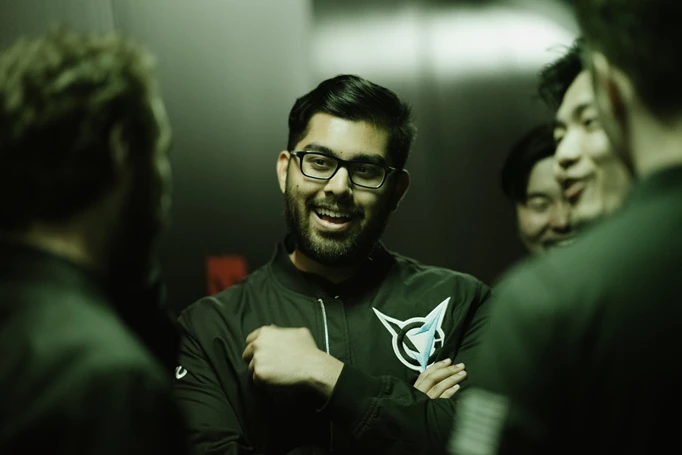
 Click to enlarge
Click to enlargeValve have created the scene to work in this manner, not that it's necessarily a bad thing, but if those are the terms of engagement teams need to abide by, Valve needs to be a little more proactive and focused on making sure things are set.
"DPC events are going to be the only ones that matter unless the prize structure is significantly redistributed into the rest of the scene. That means in COVID, and if there aren't DPC events or new things of that nature, naturally anything that is third party isn't going to be quite as consequential or quite as important. It's become pretty apparent that even putting the DPC label on something makes a huge difference. You can't put that cat back in the bag; it's the stamp of the official competitive circuit. It's where all the prestige, all the money, and all the important stuff come from. It's too important for people to not know where the DPC is at".
- Read More - Daryl' iceiceice' Koh Has Parted Ways With Fnatic
This uncertainty surrounding the esport also plagues the teams outside of the game. Quincy Crew is one of NA's many unsponsored organisations, and KBBQ is constantly looking for a sponsor to bring new opportunities and stability for the team. Except, to do that, he needs that information from Valve.
"It came back to when you're looking for a team or organisation, they're going to ask you a number of questions, one of those questions is going to be what events are coming up this season. 'If I'm putting together my yearly budget, what events am I going to be exposed at?'. That is a question that has always been very difficult or impossible to answer. The second question - is your team going to be participating in those events? It's been pretty difficult to answer as things have been in flux or things changing. The third is - are you even going to have a team? When you can't answer these three questions, it gets harder and harder to invest. People invest in growth and reduced risk; when you can't answer these questions, it looks very risky. That ends up hurting the teams and players and makes the environment a lot harder to live in".
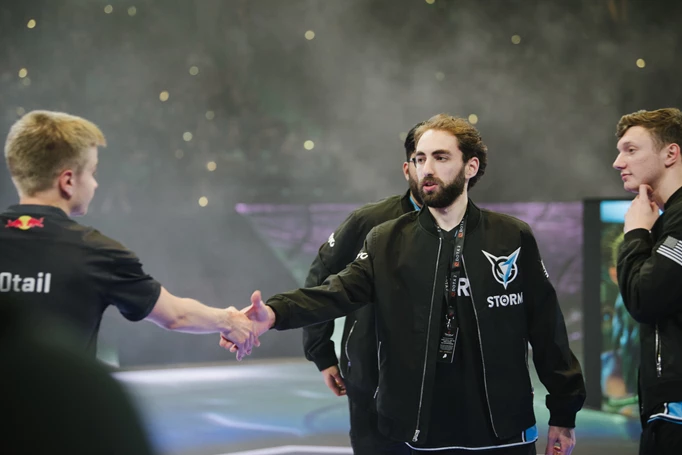
 Click to enlarge
Click to enlargeYet, credit has to be given to Quincy Crew, who even throughout all of this hardship, have stuck together and played well enough to dominate their region. What makes Quincy Crew click? Well, the majority of this group of players goes way back.
“Well, first, I think I need to explain the origin of the name. A lot of people think it has to do with Quinn; it has nothing to do with him. The core of this group it was me, SVG, Yawar, and MSS that were the longest continuous members of Quincy Crew, they weren't on the first VGJ.Storm team but they joined late that year and are the longest continuous members. We started in VGJ.Storm in a team house on Quincy Street in Brooklyn, NY. It was gritty, I will say it was a gritty experience, but it was this attitude of we're starting from scratch. We’re living in a gritty house in a seedy neighbourhood, people are living barracks-style, we were sleeping three or four in a room - it was a small house. No one is living the life or anything, just grinding from scratch and making something of us to get somewhere competitively. That’s where the Quincy Crew started, and that’s where that name resonates with us, the rags portion of our experience. Not to denigrate it too much, but those are our origins.
“There’s a certain ethos, there’s a thing that connects us. We do things the right way, we want to get the process down right. We don’t want to be just another goon stack, a collection of people who play together for a little bit, we want to be able to fight through those things, to build a cohesive a team as possible. That’s why we're still here. We might have some of the longest continuous rosters in a region where traditionally massive change is constant.
“People tend to forget we aren’t some obscure team or stack, we're two years removed from winning our group at TI, one year from another upper bracket placing. The level of trust we have in each other is pretty important at this time. We have a lot of high achieving players too, we're the last North American team to win a DPC LAN. People have played on a higher level, and this [success] isn’t out of leftfield”.
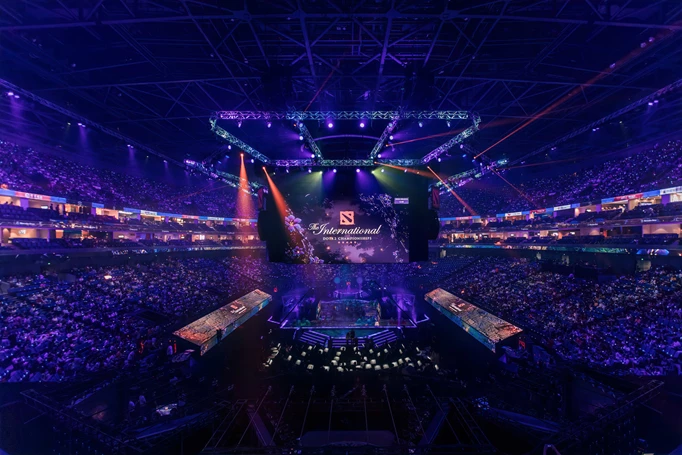
 Click to enlarge
Click to enlargeThe best that Quincy Crew and the rest of the Dota 2 scene can do is wait. Wait for the start of the new DPC season in 2021, TI10, and more updates and communication from Valve about the future of Dota’s competitive scene. Until then, they’ll have to keep participating in smaller online tournaments, less than ideal, but nothing that they can do on their end. Currently, Quincy Crew is participating in the BTS Pro Series 3: NA, which can be viewed on Twitch, and Jack Chen can be followed on Twitter @KBBQDota.
Images via Valve
